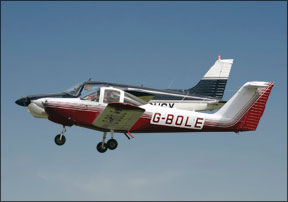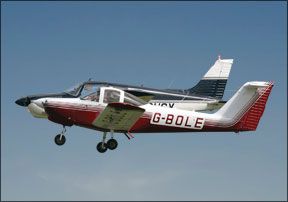Its said we learn to make good decisions by experience, and that experience results from making bad decisions. The flaw in this plan is that in flying, bad decisions can have awful consequences. How can we learn to make good flying decisions without exposing ourselves and our passengers to undue risk? What are we doing wrong? What are we as an industry doing wrong, that pilots regularly make such poor decisions about safety of flight? After all, as much as 80 percent of all aircraft 288 mishaps result from a chain of poor decisions on the part of the pilot, with actual mechanical issues being secondary if they indeed are a factor at all. I think whats going on is the whole culture of how we “learn to fly.” How many of you have been told when handed a new, temporary pilot certificate or rating that you now have a “license to learn” about flying? The tired clich is actually one of the great truths of aviation-passing the checkride signifies meeting minimum standards of safety and competence under very controlled circumstances. But it is also merely the beginning of what we need to know to fly safely. Put another way, the practical test proves you have the basic motor skills to fly, but up to that point most of the real hard decisions about when and where to fly have been made for you, or at least under the strict supervision of an instructor. That the certificate/rating system is so good as a method of teaching the motor skills is attested by the accident record. Pilots dont crash because they intentionally enter a stall and then fail to recover in time. They dont turn right instead of turning left at the beginning of a missed approach procedure in foggy skies. No, they crash out of a stall when they overload the airplane and cant outclimb obstacles, and in their distraction with increasing climb fail to notice decaying airspeed. They botch missed approaches because they get a glimpse of the runway after passing the missed approach point, and think they can just circle back and land. They take off without understanding their airplanes systems or how to interpret engine indicators, or fly into known adverse weather without the equipment needed to survive. Its rarely a lack of stick-and-rudder skill that causes accidents; its decision-making driven by experience (or lack of it) that most often turns an enjoyable flight into something we read (and write) about. A Better Way We need to better promote passing a checkride for any certificate or rating to be the beginning of mastering its privileges. We need to actively seek out ways to increase our knowledge and learn from the experience of others before we find ourselves in situations where we dont yet have the experience needed to make good decisions. And we need to educate pilots who have less experience than we do, through our example and by direct mentoring. One way to safely expand your personal flight envelope is to continue flying with an instructor. Its a common fallacy that passing a checkride means youre done receiving flight instruction, at least until the next flight review comes due. Consider additional flights with your CFI. Better yet, find an instructor from a different school or airport to get the benefit of someone elses wisdom to add to your own. Concentrate on those areas you felt weakest on in the practical test, or tasks that will increase your ability to fly the plane the way you want to fly it-“actual” IFR dual for the business pilot who just earned an instrument ticket, for instance, or real-world short- and soft-field takeoffs and landings for the budding bush pilot. Another great way to increase your safety is to find a mentor to fly with, or at least discuss real-world in-flight scenarios and decision-making. Talk to corporate and charter pilots, airline types and other general aviation pilots just like you but farther along on the experience scale. Focus on learning to deal with situations youre likely to encounter as you fly the sorts of missions you want to accomplish with an airplane, whether sightseeing around the local area or traveling coast-to-coast in the IFR system. Finding a mentor doesnt necessarily mean hooking up with the ace of the base. Talk with pilots at about the same level of experience as you, and discover what theyve learned that you may have not. Challenge each other to increase your decision-making capabilities together. You may be able to glean a great deal of experience by simply “hangar flying” with the local pilots. The Internet is abuzz with pilots groups also. Log into a chat line or two and join the flying discussion. Be careful not to fall into the “you said you can do this so I can too” trap; evaluate each posting on the basis of how it can incrementally increase your capability, and approach each new technique with extreme care (and if possible, with an instructor or knowledgeable mentor pilot at your side). You can find type- and operation-specific chat lines with a quick Google search. Make use of other learning capabilities available. No longer are we limited to personal contacts. Youre already doing something right, reading a magazine aimed specifically at making you a safer pilot. There are myriad other educational opportunities available by computer, epitomized by AOPA Air Safety Foundations online courses and products like King Schools risk management DVDs. Insist on a meaningful flight review. You shouldnt need just to practice the basics. You need to get even better. Seek out a challenging instructor to really teach you something about making in-flight decisions-go as far as to interview CFIs about incorporating scenario-based training in flight reviews before picking an instructor and scheduling. The Hard Way We dont have to blindly continue doing things the hard way-passing a checkride, then hoping we learn quickly enough to be safe. After all, what doesnt kill us may make us stronger, but it also may kill us next time…if we survive the first attempt at all. Instead, make use of the learning available to increase your safety and decision-making capability, by committing to continuous improvement and learning “the easy way”-from the experiences of others. Tom Turner is a CFII-MEI who frequently writes and lectures on aviation safety.




